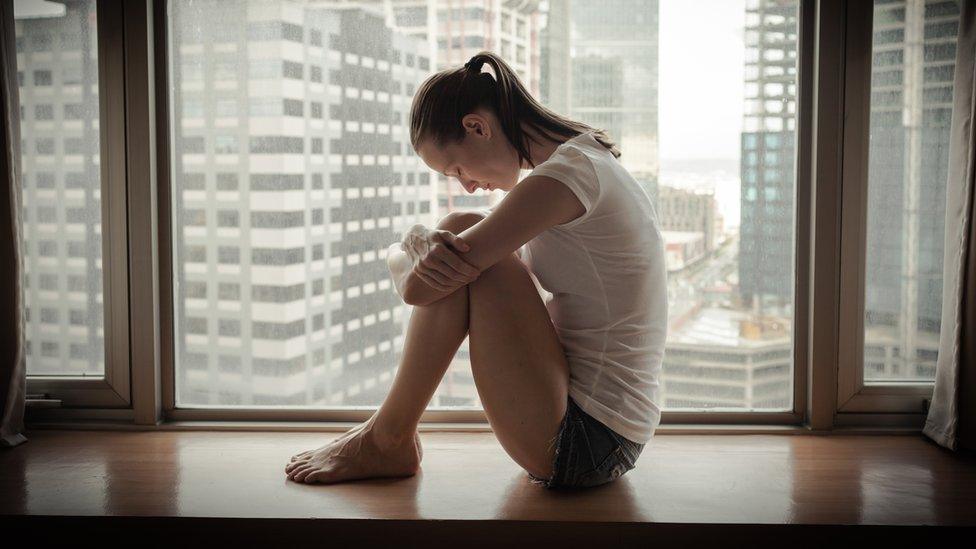The difference between anxiety and panic attacks
- Published

Anxiety should be given more attention in mental health research because it is more common than we think, says a global study of the disorder.
Scientists from the University of Cambridge said young people under 35, women and those with health problems were particularly affected.
They estimate that four out of every 100 people suffer with anxiety.
Researchers claimed it isn't given the same priority as other mental health issues.
But what is anxiety and how does it differ from having a panic attack? And what can you do if you're feeling anxious?
What is anxiety?
Anxiety is the feeling of being nervous, uneasy, anxious and awkward or feeling that you've been forced into an uncomfortable situation.
At times it's quite manageable but sometimes it can be extremely overbearing and hard to control.
The most frustrating aspect of having anxiety is how it seems to get overlooked or not taken seriously.
That's because it can be quite hard to determine, to yourself and others, how to recognise that you have anxiety.
How anxiety differs from a panic attack?
Anxiety and panic attacks are two different things, although it can be hard to identify the symptoms.
Panic attacks happen when your body's nervous system feels like it is under attack or in danger.
You may feel like you're about to collapse, having a racing heartbeat or be short of breath. These attacks can, at times, last a few minutes or a few hours.
Anxiety is there all the time; you can feel it in the background, in the subconscious of your mind.
When you experience periods of anxiety it tends to manifest in general nervousness or awkwardness in a situation.
To help you identify if you've suffered with the symptoms of anxiety here are the top 10 relatable signs.

Top tips for dealing with anxiety
Courtney Lee Deakin started experiencing anxiety at university.
She says it's important not to "taunt yourself" and to breathe. Listening to cheerful music helps too.
These are her tips.
The best way of actually telling whether someone is feeling anxious or not, is just waiting for them to speak to you with confidence, knowing that they can trust you, that you will not judge them and that you have an open mind.
One in four people at university every year deal with anxiety attacks, so here are some tips on dealing with it.
1. Breathe - Although this sometimes I know does not always work and that's fine. Starting to control your breathing will calm your mind and body down.
2. Write down all the things that you're worried about and try to keep your life organised so that you won't panic.
3. Have confidence in telling your friends and family that you deal with anxiety attacks.
4. Take yourself out of the situation that you feel awkward in.
5. Think positively about your self worth.
6. Don't taunt yourself with negative comments. This brings down your self-confidence and causes your anxiety attacks to happen more frequently.
7. Maintain a balance of good sleep and control stress.
8. Listen to happy upbeat music or watch happy films - like Disney.
9. Count to 10 in your head to help you calm your emotions down.
10. Speak to a doctor if it gets too serious and out of control.
Find us on Instagram at BBCNewsbeat, external and follow us on Snapchat, search for bbc_newsbeatt